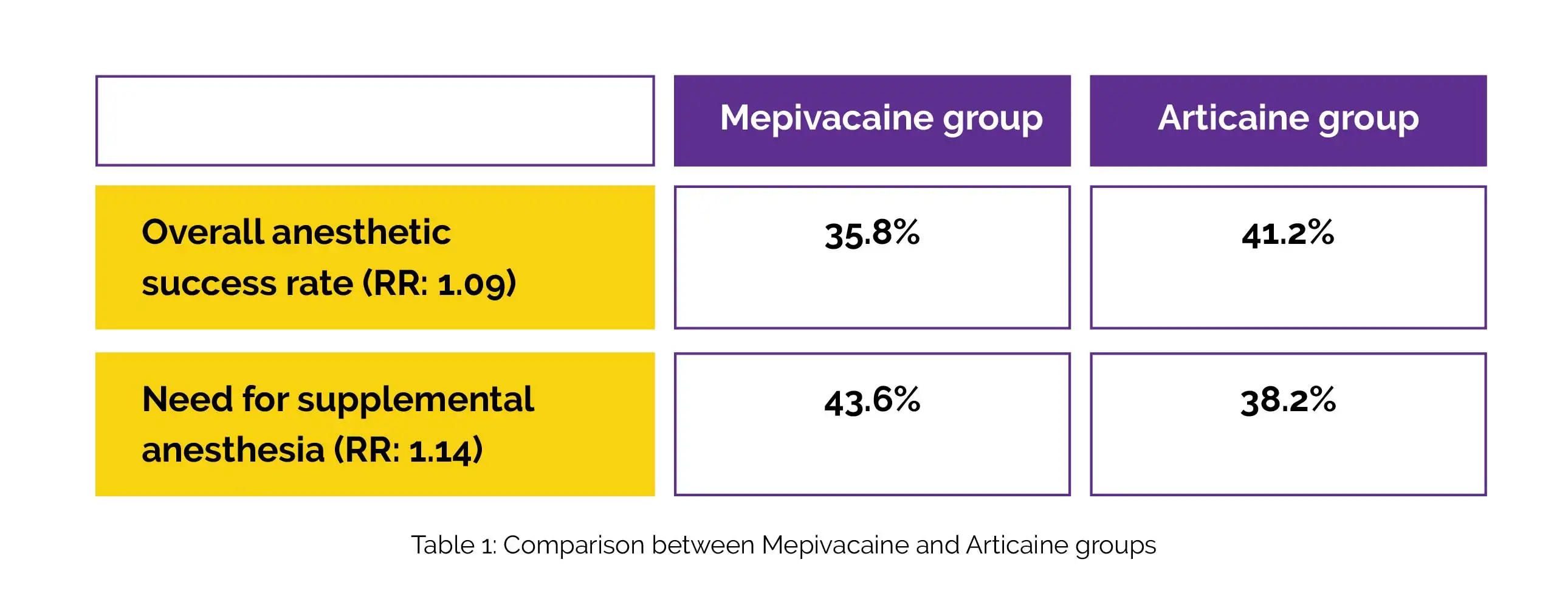Categories
Change Password!
Reset Password!


For the management of mandibular molars with irreversible pulpitis, the inferior alveolar nerve block success rates for 2% Mepivacaine and 4% Articaine were similar.
In a trial published in "International Endodontic Journal", Articaine and Mepivacaine displayed comparable inferior alveolar nerve block (IANB) success rates in people having symptomatic irreversible pulpitis (SIP) in mandibular molars. In this randomized double-blind single-centre clinical trial, the success of IANB using 2% Mepivacaine and 4% Articaine were evaluated for pulpitis management.
Notably, 3.4 ml Articaine hydrochloride 4% along with 1:100 000 adrenalin (n = 165) or 3.6 ml Mepivacaine hydrochloride 2% along with 1:100 000 adrenalin (n = 165) were given at random to 330 volunteers with moderate-to-severe pain in mandibular molars. Utilizing an 11-point Numerical Rating Scale (NRS), the severity of intraoperative pain was measured during canal instrumentation and access cavity preparation.
Overall success was defined as the absence of no-to-mild pain during treatment without the requirement for further anaesthesia; the frequency of this requirement was also documented. Statistical data assessment was done using the Chi-squared (χ2) test and Mann-Whitney U test. Calculations were made for the 95% confidence interval (CI) and relative risk (RR) of anesthesia failure. Multivariable regression analyses were used to evaluate how predisposing factors affected outcome variables. No adverse effects were witnessed by the participants.
Between groups, baseline variables were balanced. For both groups, the intraoperative pain intensity was comparable throughout access cavity preparation and instrumentation. The tooth type and preoperative pain severity were linked to intraoperative pain intensity. Table 1 illustrates the overall anesthetic success rate and additional anesthesia requirements in the study groups.

Age and preoperative pain level were linked to the requirement for further anesthesia. For mandibular molars with SIP, IANB success rates for 2% Mepivacaine and 4% Articaine were comparable during access cavity preparation and instrumentation. Age, tooth type, and preoperative pain were all related to intraoperative pain experienced during endodontic therapy.
International Endodontic Journal
Inferior Alveolar Nerve Block Success of 2% Mepivacaine versus 4% Articaine in Patients with Symptomatic Irreversible Pulpitis in Mandibular Molars: A Randomized Double-Blind Single-Centre Clinical Trial
Mohammed Fawzy Omar Mohammed Habib et al.
Comments (0)